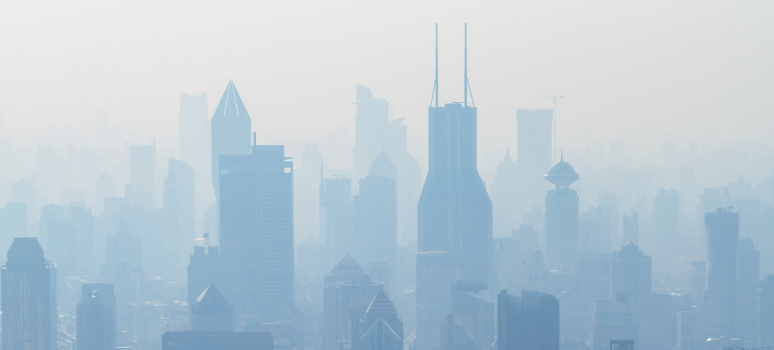Do permitted levels of pollution in cities really protect us? A research project links "low" pollution to mortality.
The effects of air pollution on health are felt every day. However, once pollution levels that are considered "safe" have been established, the effects of pollution are still felt. The study Elapse Project investigates the association between air pollution and mortality in areas where pollution is below standards determined by the authorities of the European Union, the United States and the World Health Organisation.
The researchers call for a review of pollutant limits, standards and guidelines because there is evidence that low pollution is associated with mortality. The research is based on changes in exposure to fine particulate matter, nitrogen dioxide, ozone and carbon, always below the permissible limit. Slight increases in exposure are associated with increased mortality from natural causes and the occurrence of respiratory diseases.
The asthma is associated with long-term exposure to 'low' fossil fuel pollution. This pollution is also behind the development of COPD or a worsening of the health status of those who suffer from it. Lung cancer is the leading cause of cancer deaths worldwide and, although the type of pollutant particles prevalent varies greatly by region, the fact remains that many factors constitute an independent risk, and we are talking about both indoor and outdoor air pollution by the above-mentioned agents or with asbestos, radon or arsenic particles.
As mentioned above, the project is calling for a review of the accepted levels of particulate pollutants in the air with the intention of prevent these and other diseases in the future. To these levels of particulate matter, we must also add the effects of climate change on air quality.
Air pollution and children
One in ten children may have asthma and the main cause is pollution from city traffic. Exposure to carbon dioxide and fine particulate matter can trigger severe asthma episodes and paediatric experts warn that air quality is worsening, also due to the lack of rain, which can lead to chronic asthma.
Other risks of contamination at an early age is the influence on neurodevelopment and cognitive functions and physical and motor development.
On the other hand, exposure to high levels of contamination by the expectant mothercan affect the development of a baby's immune cells and predispose children to allergies or asthma. In addition, pollution increases the risk of premature birth.
Globally, it is estimated that 90 per cent of children breathe toxic air every day and every year, some 600,000 children die from acute lower respiratory tract infections.
Children are more vulnerable to external attacks because their bodies are still developing and their development may be compromised. Biological medicine, however, takes this maturational level and external agents into account. as an approach to different treatments.
Are we also affected by forest fires?
In recent weeks Spain has experienced some of the most tragic fires in recent times. In addition to the environmental and social consequences of the devastation of thousands of hectares of land, the fires have also been a major cause for concern.he health of the people who live close to them is also affected.
Some symptoms of fires may be normal over a period of time: the eye irritation, coughing and throat irritation and even difficulty breathing. In addition, headache and chest pain, asthma attacks, tiredness or accelerated heart rate affect many people, especially the elderly, children and pregnant women.
The greatest risk, however, is for those who have a previous lung or heart disease.
As in pollution contamination, inhalation of fine particulate matter that occurs when wood and other organic matter is burned, is the greatest threat to health as they penetrate into the lungs.


